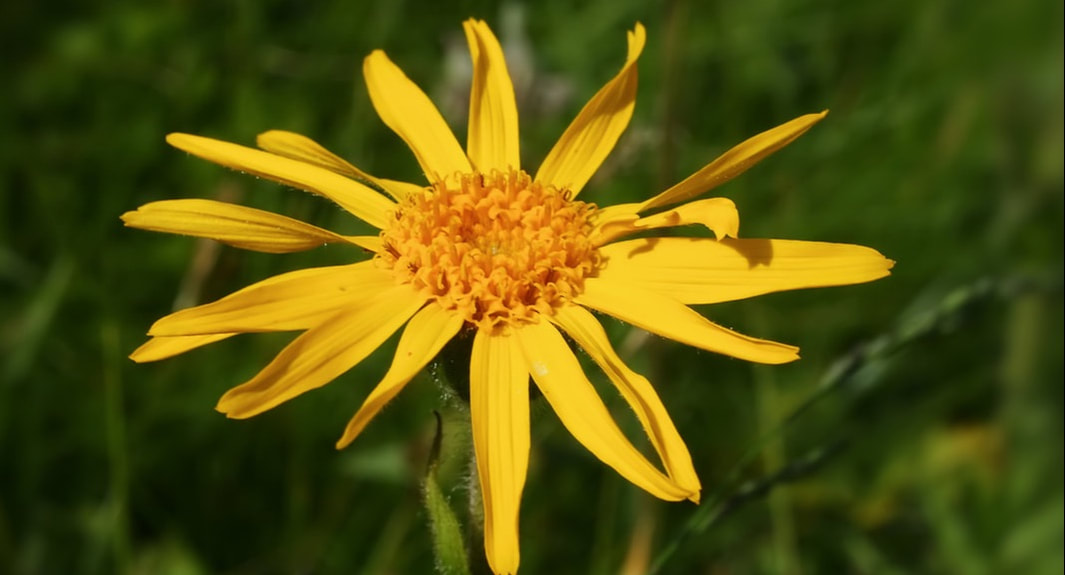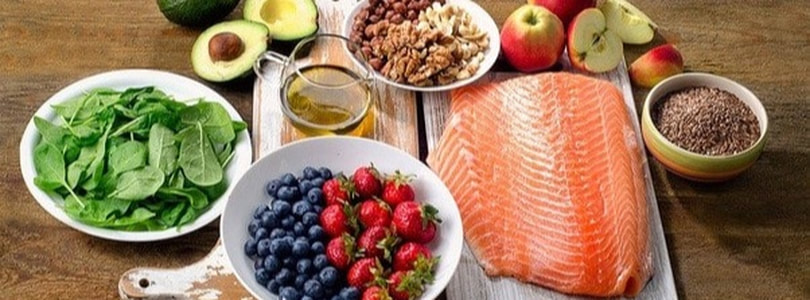|
This is the time of year when many of us start to think about getting outside, enjoying the longer days and warmer weather and being more active.
This is totally in keeping with the rhythms of the seasons: as nature wakes up, blossoms and grows, so do our bodies feel the need to be more active. So here are some tips for how to work with the seasons, and also some suggestions for what to do if you experience some of the less pleasant effects of overdoing it with your activities or being outdoors! Foods and supplements to support your liver In the Chinese Five Element System, Springtime is when the liver is most active. The liver is an awesome organ – it carries out thousands of metabolic activities, breaking chemicals down and detoxifying them, building compounds that your body needs, and helping you to digest your food and regulate your blood sugar. Spring is the time to give your liver some love. You can do this by eating generous portions of green leafy vegetables and including sour foods and drinks, like apple cider vinegar or lemon juice. These stimulate and support your liver in all its many essential activities. Try a spinach salad with an olive oil and lemon juice dressing and your liver will love you back. You can also do a liver cleanse, using Milk Thistle as a daily supplement for a couple of weeks. Milk thistle stimulates liver detox and cell regeneration and also has the reputation for having anti-inflammatory and anti-ageing properties. Contact me if you would like recommendations for brands and dosages. The other important thing to do in the Spring to support your health is to exercise. It doesn't really matter what you do, but if you find something you enjoy, you are more likely to make it a regular activity. Walking, hiking, running, biking, swimming, yoga, working out - just find something that you like doing! If you're not used to it, start slowly and gradually build up the duration and intensity. Did you overdo it? It’s easy to get really enthusiastic about a new exercise routine and do too much or even sustain an injury. Here are a couple of suggestions for homeopathic remedies that can help ease muscle soreness and strains. If you have more serious injuries, seek medical advice. Arnica This is the go-to remedy for muscle soreness from overuse. You can buy it from Whole Foods, Sprouts, Pharmaca and similar stores – look for the Boiron display with the blue tubes. Use a 30c potency; you can take this a couple of times a day, but don’t take any remedy for more than a few days. As soon as you feel an improvement, stop taking the remedy. You can take more if your symptoms return. Rhus toxicodendron (Rhus-tox) If you have strained a muscle through overlifting, or maybe have a mild sprain and Arnica has not helped, this is the next remedy to think of. You can take it in the same way as Arnica. If your symptoms are not improving after a few doses, there are more remedies that can be used, and I can help you! Call me on 650 557 2160. Allergies? If you are experiencing allergies after being outside, you are not alone! Here are a few self-help measures you can try to relieve your symptoms:
1 Comment
A recent report selected the 100 most nutritious foods, those that best satisfy your nutritional requirements. It’s based on nutritional data collated by researchers and published in PLoS One.
You might notice a few things that surprise you (and some that don’t). It’s no surprise that most of the foods on the list are plant-based – for example vegetables, fruits, seeds, nuts and herbs. But I was struck by the fact that there are no grains on the list (not even whole grains). Their nutritional content is not high enough to make the cut. You will find beans (legumes) such as black-eyed peas and Lima beans. Olive oil is nowhere to be found, but pork fat gets a high rating, due to its B-vitamin content. There is no other meat product included, but you will see a wide range of fish and seafood. Take a look and see how you can incorporate some of the awesomely nutritious foods on the list into your diet! Click on http://www.bbc.com/future/story/20180126-the-100-most-nutritious-foods to see the full list.  I was asked this question a little while ago. My son has a background in paleogenetics and he persuaded me to do 23andMe a while back. What I have understood from him and from my reading on the subject is that this kind of genome analysis looks for certain SNPs (tiny modifications in particular locations on your chromosomes). On the basis of genetic studies of disease associations in populations, a very small number of these SNPs have been found to be linked with increased or decreased risk for certain health conditions. I did 23andMe a few years ago and I would say that for me, the only useful thing that it did was to identify that I am extremely likely to be lactose intolerant. The health risk analysis (which at the time was not done by 23andMe, but by a third-party web site called Promethease.com, due to FDA regulations) gave me a long list of SNPs (single nucleotide protein modifications) along with a complex assessment of relative risks for various health conditions and likelihood of responding to various medications. It also told me that I am of European descent (which I knew) with 2.7% Neanderthal DNA (which I didn’t know, but is like most Europeans). However, the key thing to bear in mind is that the disease tendencies are only probabilities and not destiny. Some of the studies they work from have turned out to be unreliable when further research was done, so this is far from 100% sure or accurate. It’s just probabilities. And it’s complicated - certain SNPs in your genome may give you a 10% increased risk of developing a certain disease compared to the rest of the population (where the risk may already be very low) but you may also have other SNPs that give you a decreased risk of 15% for the same condition. And geneticists are very far from identifying all the SNPs with disease risk or protection. Plus, they don’t know how they may interact. Also, you may have a gene for a certain characteristic, but it may not be “switched on,” so it won’t be doing anything. This is “epigenetics” and this is where nutrition and lifestyle are so important, as nutritional factors can alter the expression of genes. SNPs are like misprints in the 4 letters that make up the genetic “alphabet.” Your DNA is composed of long sequences of four proteins (abbreviated to A T, C and G), which are attached to the double helix structure of the DNA molecule; they carry coded information for the production of proteins in your cells. They are attached in pairs, one half of each pair on each side of the double helix. A attaches to T, and C attaches to G. When reproduction takes place, the two strands of the helix separate, duplicate and then recombine, so you get one half from your mother and one from your father. In this duplication process, sometimes mistakes are made, so chunks of DNA may end up in a different place, or be duplicated, or letters may be changed, a bit like typos in a document. Some of these changes are associated with risks for certain health conditions and genomic testing can identify some of them. See https://www.23andme.com/gen101/snps/ for more information. In short, it’s really complicated, we don’t know enough about it yet, and there is a mistaken tendency to think of your genome as your destiny, which in a way it certainly is, but not in the way it’s tempting to think - i.e. having a particular genetic modification does not mean you are 100% going to develop a particular health condition, except in unbelievably rare cases. If you want to know more, and put genetic testing into context, I would recommend A Brief History of Everyone Who Ever Lived. The Human Story Retold Through Our Genes by Adam Rutherford, which explains very well what your genome can and can’t tell you. Bottom line for me - if you want to spend money on it for academic interest, go for it. But it probably won’t be that helpful in terms of your health, and you might end up worrying unnecessarily. Are there natural solutions to help your body cope with the terrible air quality that we are currently experiencing in the Bay Area as a result of the Napa fires?
The answer is: yes, but it may not be through homeopathy UNLESS you have clear symptoms that are due to the smoky air. My personal view (based on my experience and how I was trained) is that it is really only possible to select a similar remedy (the basis of homeopathy) when you have some identifiable symptoms. If you are experiencing troublesome symptoms from the poor air quality (coughs, headaches, eye irritation, etc), please contact me - I may be able to help. Try the following approaches to help protect yourself and your family from the effects of the smoke: Common sense measures:
Nutritional suggestions:
When these measures are insufficient and symptoms appear, or if you are especially sensitive, then you might need a homeopathic remedy based on the symptoms. There are times when remedies can be used prophylactically, such as in epidemics, when the epidemic remedy has been identified (based on the prevalent typical symptoms of the illness). Natrum arsenicosum 30c is often used as a homeopathic remedy for smoke exposure with fairly non-specific symptoms. As with all homeopathic dosing, if the remedy hasn’t helped after 3-4 doses, it is not the right choice and you should stop taking it and look for a better match for your symptoms. If you are currently receiving homeopathic treatment for a chronic condition, please call me before taking any other homeopathic remedy, as it may interfere with your long-term treatment. Call me for homeopathic advice - 650 557 2160. Gemmotherapy extracts (made from plant buds, rootlets or shoots - a bit like plant stem cells) can be helpful in this situation. I would suggest Common Alder (Alnus glutinosa) which reduces inflammation and aids healing, Dog Rose (Rosa canina) which reduces inflammation in mucous membranes and enhances immune response, and Black currant (Ribes nigrum), which reduces inflammation and allergic response, enhances immune response and supports adrenal function. Be careful with Black currant, as it can be overstimulating to some people. Buy gemmo extracts at www.vitalextract.com. You might like this useful article: http://kivasenchantments.com/smoke.html |
Deborah HayesHomeopath, nutritional therapy practitioner, always interested in learning more about health, healing and nutrition. Archives
April 2018
Categories |



 RSS Feed
RSS Feed
